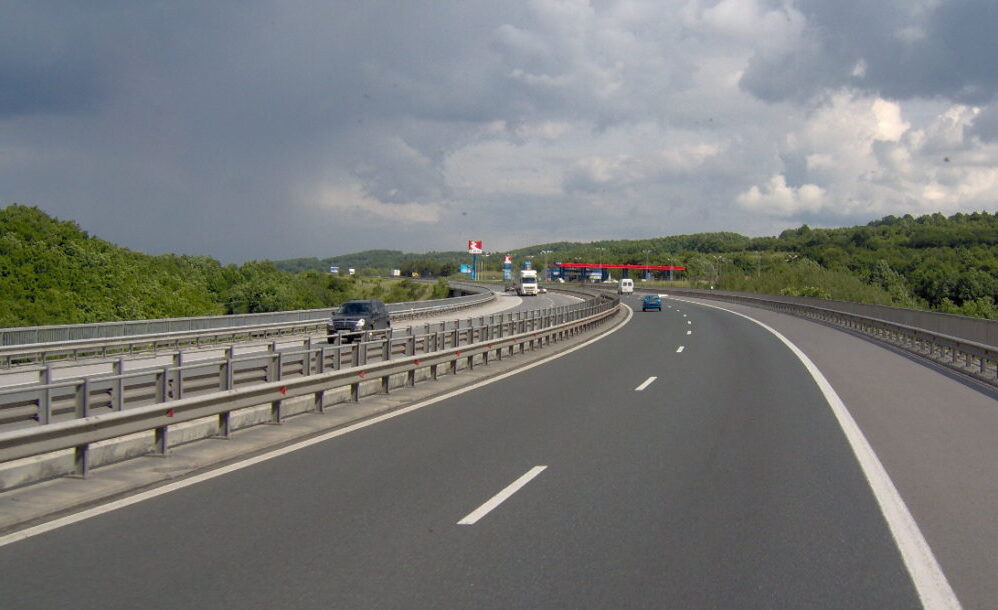In a significant development for West Africa, the Abidjan-Lagos Highway project has emerged as a crucial infrastructure initiative. This ambitious endeavour aims to connect five key countries, namely Côte d’Ivoire, Ghana, Togo, Benin, and Nigeria. By enhancing road connectivity, this highway is set to facilitate these moments of friendship day trade and promote economic growth across the region.
Overview of the Abidjan-Lagos Highway Project
The Abidjan-Lagos Highway project encompasses a 1,000-kilometer stretch of road designed to link the bustling city of Abidjan in Côte d’Ivoire to Lagos, Nigeria’s commercial hub. This project, which has been in the pipeline for several years, is expected to alleviate traffic congestion, reduce transportation costs, and improve travel times between these major cities.
As the backbone of regional transportation, the highway will also foster closer economic ties among the participating countries. By streamlining the movement of goods and people, the project aims to boost intra-African trade, which is vital for the continent’s economic development.

Economic Impacts: A Catalyst for Growth
The Abidjan-Lagos Highway is poised to serve as a catalyst for economic growth in West Africa. With improved connectivity, businesses will benefit from reduced logistics costs and enhanced access to regional markets. Consequently, this infrastructure development is likely to attract foreign investment, further stimulating economic activity.
Moreover, the highway is expected to create thousands of jobs during its construction and subsequent operation. This job creation will have a multiplier effect on local economies, strengthening communities and improving living standards. As a result, the project aligns with Africa’s broader goals of sustainable development and poverty alleviation.
Enhancing Trade Efficiency: The Role of Modern Infrastructure
In today’s global economy, efficient transportation networks are essential for facilitating trade. The Abidjan-Lagos Highway will significantly enhance trade efficiency by providing a reliable route for the transportation of goods. Currently, businesses in the region face numerous challenges, including poorly maintained roads and lengthy customs procedures.
By addressing these issues, the highway will streamline the movement of goods across borders. For instance, the reduction of travel time can lead to fresher produce reaching markets more quickly, thereby benefiting both producers and consumers. In addition, the highway will support the growth of the logistics sector, which plays a critical role in connecting businesses with their customers.

Environmental Considerations: Balancing Development and Sustainability
While infrastructure development is crucial for economic growth, it must be balanced with environmental considerations. The Abidjan-Lagos Highway project has incorporated measures to minimize its ecological footprint. For instance, the design includes provisions for wildlife crossings and the preservation of natural habitats.
Furthermore, the project aims to promote sustainable practices in construction and operation. This includes using eco-friendly materials and implementing efficient waste management systems. By prioritizing sustainability, the highway project demonstrates a commitment to protecting the environment while fostering economic development.

Regional Cooperation: A Model for Future Projects
The Abidjan-Lagos Highway project exemplifies the importance of regional cooperation in addressing infrastructure challenges. By bringing together multiple countries, this initiative fosters collaboration and shared investment in critical projects. Such cooperation is essential for overcoming the limitations of individual national efforts and ensuring that regional infrastructure development is comprehensive and effective.
Moreover, the project serves as a model for future initiatives across Africa. As countries work together to improve connectivity, they can also share best practices and knowledge, leading to more efficient and successful infrastructure projects. This collaborative approach is vital for achieving the African Union’s Agenda 2063 goals, which emphasize the need for integrated infrastructure development across the continent.
The Role of Technology: Innovating the Construction Process
Technological advancements play a pivotal role in the successful execution of infrastructure projects. The Abidjan-Lagos Highway project is expected to leverage modern construction technologies to enhance efficiency and reduce costs. For example, the use of advanced materials and construction techniques can expedite the building process while ensuring quality and durability.
Additionally, technology can facilitate better project management and monitoring. By utilizing digital tools, project stakeholders can track progress, manage resources, and address challenges in real-time. This proactive approach will help ensure that the project stays on schedule and within budget, ultimately benefiting the region.
Investment in Human Capital
As the highway facilitates the movement of goods and services, it will also enable the movement of people, fostering cultural exchange and collaboration among diverse populations. This interconnectedness can lead to enhanced educational and professional opportunities, helping to invest in human capital across the region.
By providing easier access to educational institutions and training centers, the highway can empower individuals with the skills needed in a rapidly evolving job market. This focus on education and skills development is crucial for driving innovation and ensuring that the workforce is prepared for the demands of the future economy.
Security and Stability
In addition to economic benefits, the Abidjan-Lagos Highway can contribute to regional security and stability. Improvedconnectivity can lead to better collaboration among law enforcement agencies, facilitating the movement of security personnel and resources. This can enhance the ability to monitor and address security challenges that may arise along the route.
Furthermore, by creating jobs and promoting economic opportunities, the highway can help alleviate some of the socio-economic factors that contribute to unrest and instability in the region. A more prosperous and connected West Africa has the potential to foster peace and cooperation among its nations.
Conclusion: A Transformative Journey Ahead
The Abidjan-Lagos Highway project represents a significant step forward for West Africa’s infrastructure development. By enhancing connectivity, promoting economic growth, and fostering regional cooperation, this initiative is poised to have a lasting impact on the region.
As stakeholders continue to work together towards the successful implementation of this initiative, it is crucial to maintain a focus on inclusivity, environmental stewardship, and human capital development.
This highway is a testament to the potential of collaborative efforts in addressing infrastructure challenges across Africa. By learning from this project and applying its lessons to future initiatives, the continent can continue on its path towards achieving economic integration and sustainable development.
As the Abidjan-Lagos Highway project unfolds, its impact on the region will be closely watched, serving as a beacon of hope and a model for future infrastructure endeavors that aim to create a more connected, prosperous, and resilient Africa. Ultimately, this highway has the potential to transform the economic landscape of West Africa, paving the way for a brighter and more prosperous future.


















If intra-african trade is put at 15%-25% pending on the source; then this gigantic project will ultimately improve trade and travels thereby enhancing business and GDP.
Kudos!